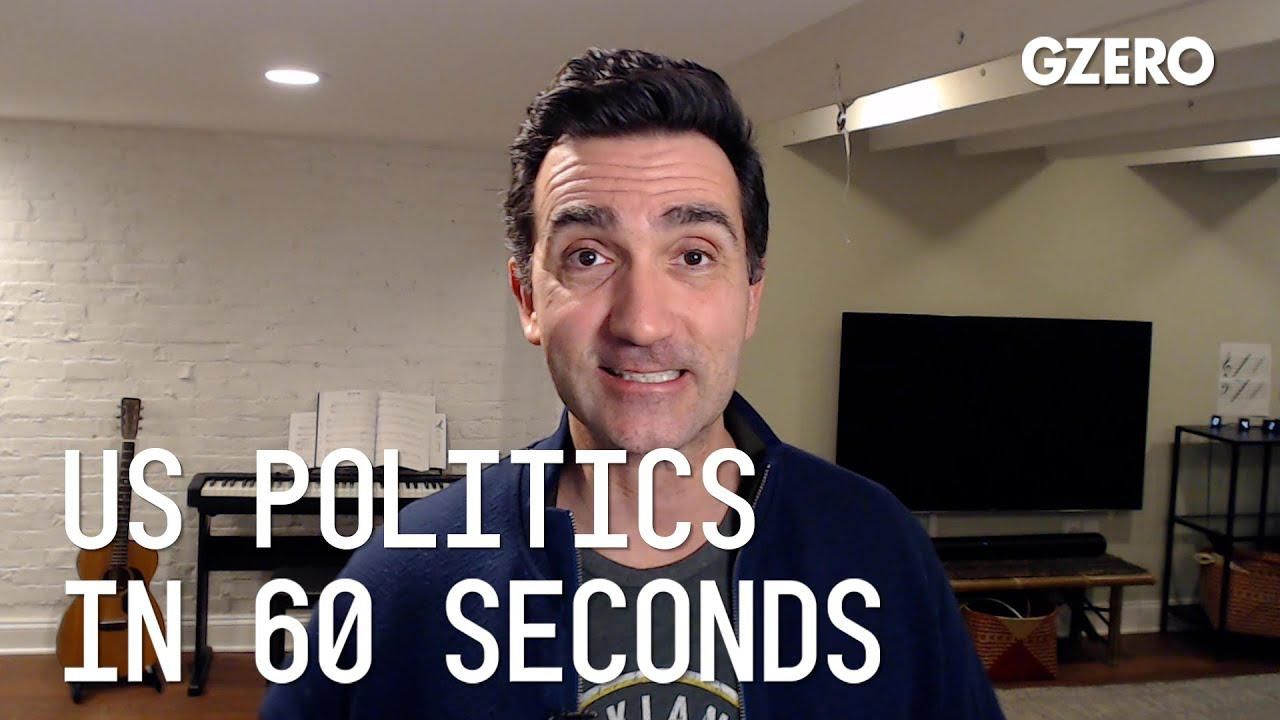US Politics In 60 Seconds
Biden administration's COVID response likely to impact midterms

Biden Administration's COVID Response Likely to Impact Midterms | US Politics In :60 | GZERO Media

Jon Lieber, head of Eurasia Group's coverage of political and policy developments in Washington, discusses the Biden administration's response to the omicron variant:
How is the Biden administration's response to omicron?
Well, it hasn't been great. It started with the travel ban from affected countries that was already probably behind the curve given how widespread the variant was and the administration admitted they did not see this new variant coming. They were caught flat-footed on the surge in demand for testing over the holidays. And while they first promised to make tests reimbursable by insurance, which is, of course, a real pleasure for Americans who love to deal with their insurance companies, they then said they were going to make 500 million tests available for free, but this isn't even enough to have two tests for every American. And news came out that they were instead of investing in increased manufacturing capacity, what they were doing was going to purchase surplus tests, which could exacerbate private sector shortages. But probably, more importantly, it means that the new free tests were going to arrive probably after the current surge in cases is over.
The CDC changed its guidance last month to say that instead of isolating for 10 days, people should isolate for only five. And this was done in order to minimize economic disruptions instead of for public health reasons, which led to criticisms of the administration that they were no longer following the "science" as they promised to at the beginning of the administration.
The administration's top infectious disease specialist, Anthony Fauci, this week made headlines for sparring with Republican Senators at a congressional hearing and not for his public health advice. And the CDC Director seems to only get attention for her missteps and misstatements at this point. The administration's strategy seems to boil down to hope that this thing goes away quickly. Their vaccine mandate looks like it could be overturned by the courts any day now and it's unclear if the mandate's even worth doing given how many vaccinated people are catching the omicron variant and then being forced to isolate anyway. The US is probably running up against its natural limit of who's willing to get vaccinated at this point and it's unclear how many more people are going to get their first shot.
Now, at the same time, the fiscal response is starting to slow as some of the extraordinary pandemic measures start to run off and it doesn't look like the Biden administration's going to be able to push a lot of new spending through Congress with the Build Back Better agenda stalled. Biden's approval has dragged all year because of COVID and right now he's in the low 40s and high 30s, which is right around where President Trump was, even though he started last year at about 55% approval. So this has been a real problem for him but at this point the pandemic response comes down to individual caution and states, who have been doing a much better job getting out free tests to individuals but are saying they are not going to impose any new lockdown measures because of the political unpopularity of this. Rough time for President Biden, probably going to affect the Democrats in the midterm elections.
In this Quick Take, Ian Bremmer addresses the killing of Alex Pretti at a protest in Minneapolis, calling it “a tipping point” in America’s increasingly volatile politics.
Who decides the boundaries for artificial intelligence, and how do governments ensure public trust? Speaking at the 2026 World Economic Forum in Davos, Arancha González Laya, Dean of the Paris School of International Affairs and former Foreign Minister of Spain, emphasized the importance of clear regulations to maintain trust in technology.
Will AI change the balance of power in the world? At the 2026 World Economic Forum in Davos, Ian Bremmer addresses how artificial intelligence could redefine global politics, human behavior, and societal stability.
Ian Bremmer sits down with Finland’s President Alexander Stubb and the IMF’s Kristalina Georgieva on the sidelines of the World Economic Forum to discuss President Trump’s Greenland threats, the state of the global economy, and the future of the transatlantic relationship.